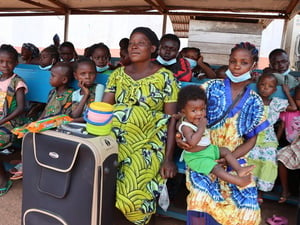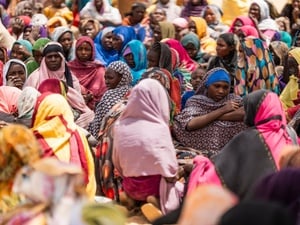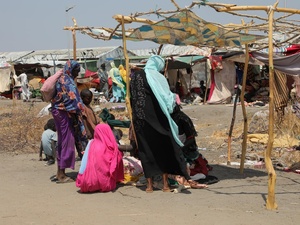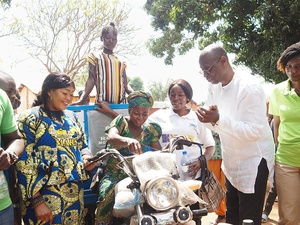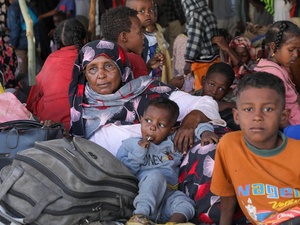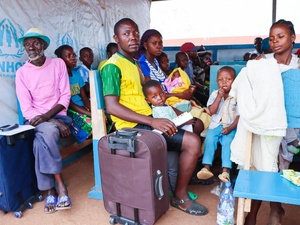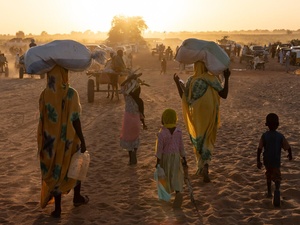As refugees continue to flee violence in the Central African Republic, UNHCR and partners renew appeal for more support
As refugees continue to flee violence in the Central African Republic, UNHCR and partners renew appeal for more support
Today, UNHCR and 18 partners are presenting the Regional Refugee Response Plan to assist more than 460,000 refugees from the Central African Republic who have fled to the neighbouring countries. The plan appeals for USD 331 million to provide, food, clean water, shelter, health, protection and other basic services to the CAR refugees in Cameroon, Chad, the Democratic Republic of the Congo and the Republic of the Congo.
Nearly 190,000 people have fled the country since the anti-Balaka militia overran the capital Bangui in December 2013. Before that, more than 230,000 people had already fled violence and lawlessness, bringing the total number of refugees from the Central African Republic to some 425,000. Nearly 10 percent of the Central African Republic's population of 4.5 million lives in exile.
UNHCR is extremely concerned that violence in the Central African Republic will continue and that the number of people forced to flee their homes will grow, possibly reaching 460,000 or even more by the end of the year.
Recently, violence in Kouango district, some 300 kms away from Bangui, sent thousands of refugees into the territory of Bosobolo in the extremely remote and inaccessible north of Equateur Province in the Democratic Republic of the Congo. While we have received reports of the arrival of 10,000 refugees since December, local government officials have registered up to 30,000. UNHCR and the Congolese National Commission for Refugees are currently on the ground to verify these numbers and register the new arrivals. Our teams are telling us that people continue to cross the Oubangui river on a daily basis. Refugees who manage to cross into the DRC are telling us stories of their villages being burnt, violence and murder. Some refugees arrive with bullet wounds.
Most of the newly arrived refugees have settled on the shores of the Oubangui River, but some others live on the small islands in the river. They live in makeshift shelters with limited access to health care and potable water. An emergency evaluation team, including several partners, just returned from the area and we are working on a plan to relocate the refugees away from the border, so that they are safer and can receive humanitarian assistance. During their mission, the evaluation team converted one of their cars into an ambulance to evacuate refugees with bullet wounds to the local hospital.
Most of the Central African refugees have fled to the north of Cameroon and Southern Chad, countries that are also receiving thousands of refugees fleeing violence in north-eastern Nigeria. In the meantime, more than 430,000 people remain internally displaced inside the Central African Republic
In 2014, UNHCR and partners appealed for USD 210 million under the CAR Regional Refugee Response Plan. That plan was funded at 57 per cent (USD 120 million), allowing humanitarian agencies to provide the most basic life-saving assistance to the refugees.
For more information on this topic, please contact:
- In Kinshasa, Celine Schmitt on mobile +243 81 700 94 84
- In Bangui, Dalia Al Achi on mobile +236 72675186
- In Geneva, Karin de Gruijl on mobile +41 79 255 9213


